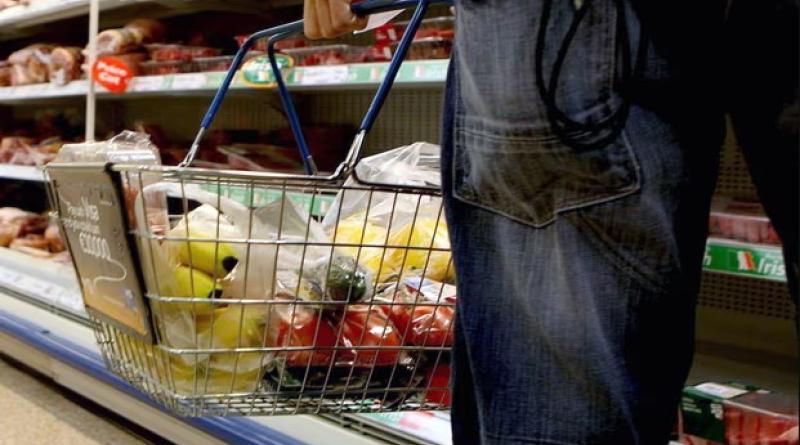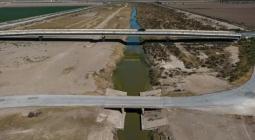More than a fifth of UK shoppers’ favourite grocery items at climate breakdown risk

Report finds consumers could also face shortages of bananas, avocados, peas and tea in the coming years owing to carbon dioxide emissions
More than a fifth of UK shoppers’ favourite grocery items are at risk from climate breakdown, a new report has found.
Consumers could also face shortages of bananas, grapes, avocados, cashews, cocoa, peas, canned tuna and tea in the coming years, as the countries they come from are hit by changing weather patterns because of CO2 emissions, the charity Christian Aid has said.
Of the 25 biggest food exporters to the UK, eight – Brazil, South Africa, India, Vietnam, Peru, Colombia, Ivory Coast and Kenya – faced high climate vulnerability, according to research by the charity. It found 22% of the items in a typical British grocery shop were at risk.
Some effects have been seen already. Earlier this year, UK supplies of tomatoes, cucumbers, lettuce, peppers and citrus fruits ground to a halt as drought hit parts of Spain and Morocco.
Yadira Lemus’s family has been farming coffee in the hills of Honduras for generations, with their farmland almost perfect for the crop. “We would plant coffee and it produced almost by itself,” she said.
But old certainties can no longer be relied upon. “It is harder to predict the weather,” Lemus told researchers from Christian Aid. “Before we could say which is winter or summer, and when we can plant. Not any more.”
Lemus, who is part of a women’s group working with the support of Christian Aid partners to implement climate adaptation projects, said the difficulties she and fellow coffee cultivators were facing were “obviously related to climate change”.
She said: “Who was going to predict that we were going to have the storms and hurricanes we had last year? Now you see there is a lack of rain. We are more vulnerable to these types of changes.”
Further global heating would mean more harvest-destroying extreme weather events, researchers say, leaving consumers facing further shortages and long-term prices rises. In March, annual food price inflation in the UK reached an all-time high of 19% – the second highest figure in the G7, after Germany.
“The UK may be an island but in an ever more interconnected world we cannot escape the damage caused by climate change,” said Patrick Watt, chief executive of Christian Aid.
He said: “Our record on carbon emissions has helped cause the climate crisis. Farmers in some of the world’s poorest countries are now struggling to cope with droughts, storms and rising temperatures.
“The climate crisis is increasingly disrupting the supply chains of the food in British shopping baskets and risks adding to the cost-of-living crisis. The case for action has never been clearer. The UK government must work with others to provide the financial support needed to help vulnerable communities adapt to a fast-changing climate.”
Smallholder farmers in low-income countries were suffering the most extreme consequences of the climate crisis, said Alexander Carnwath, head of public affairs at the Fairtrade Foundation.
He said: “This is an important and timely report from Christian Aid, drawing the connection between the threat that climate change poses to the livelihoods of farmers, and the food we eat in the UK. We cannot and must not ignore the needs of the people who produce our food.”
Photograph: Julien Behal/PA - Earlier this year, UK supplies of tomatoes, cucumbers, lettuce, peppers and citrus fruits ground to a halt as drought hit parts of Spain and Morocco.





